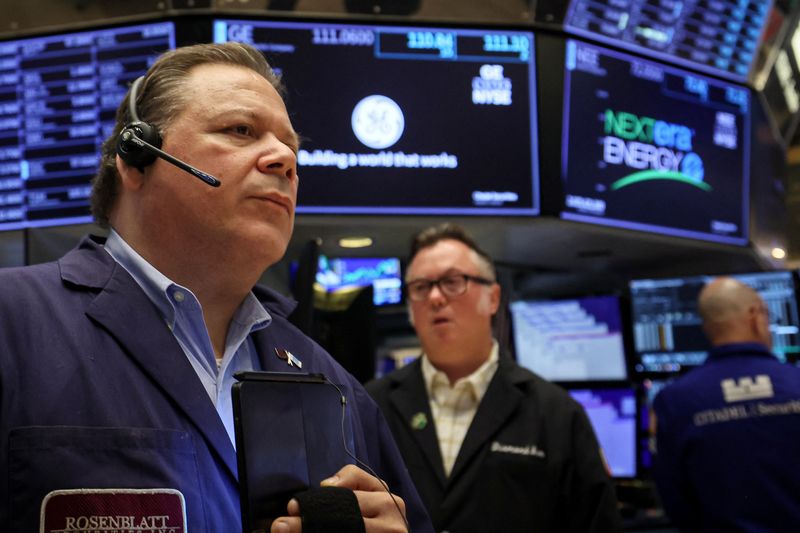Yields in the U.S. Treasury market, a critical place for investors seeking shelter from turmoil and for the government to raise money, have been heating up.
Recent gains have been broad-based. The two-year yield has approached 4 percent, and the 30-year U.S. government bond flirted with 5 percent in intraday trading, the highest level since mid-January.
Treasury yields represent the interest rates the federal government pays to borrow money and trade inversely to the bond’s price. They also influence borrowing instruments, from mortgages to auto loans.
Yields can reflect investors’ confidence. An increasing yield can suggest shrinking demand for bonds, economic optimism, and rising inflation expectations. Conversely, a falling yield will signal growing caution about the broader economy and projections of lower interest
into the conventional safe-haven asset during geopolitical or financial turbulence. Despite the market carnage this week, however, investors did not search for protection in government bonds.
Analysts Debate China
A significant spike in yields in a short period would typically be caused by widening supply-demand imbalances. A bond vigilante—an investor frustrated by fiscal policy—or a foreign country disgruntled by another country’s trade policy might suddenly cut their exposure to U.S. bonds.
“[China] is stuck with a 100 percent-plus tariff. So they definitely still have an ax to grind,” the report reads.
Beijing has been gradually unwinding its position in U.S. Treasury securities for nearly two years.
It is unclear if China is dumping U.S. government bonds. Lawrence Gillum, the chief fixed income strategist for LPL Financial, told The Epoch Times that currency movements could determine if foreign investors are ditching U.S. assets.
“When foreign investors sell U.S. assets, including U.S. Treasurys, they receive dollars from the sale,” Gillum said.
“From there, a foreign investor will convert its dollar holdings into its home currency since it doesn’t really need dollars for anything. Those transactions tend to place downward pressure on dollars (as they sell dollars) and upward pressure on its home currency (as they buy their home currency).”
This week, the U.S. dollar has noticeably appreciated against the Chinese yuan, which is the opposite of what would occur if the regime dumped Treasury securities.
In addition, other government bond markets, such as Canada and the United Kingdom, are facing intense selling pressure. This week, the British and Canadian 10-year yields topped 4.74 percent and 3.25 percent, respectively.
“Our view is that there are a number of reasons why U.S. Treasury bonds are selling off, but forced deleveraging is likely the primary culprit, [and] an illiquid Treasury market has likely exacerbated the move in yields,” Gillum stated.
“That is not to say there hasn’t been foreign officials selling, it just isn’t the primary reason for the bond selloff, in our view.”
Treasury Yields and Economic Policies
Kevin Hassett, the head of the National Economic Council, stated that the selloff in the Treasury market pushed the White House to accelerate its decision to pause President Donald Trump’s reciprocal tariffs for 90 days.
Treasury yields have become an integral factor for senior administration officials as higher movement can increase borrowing costs for Uncle Sam.
“The president wants lower rates. He and I are focused on the 10-year Treasury and what is the yield of that,” Bessent said.
“We cut the spending, we cut the size of government, we get more efficiency in government, and we’re going to go into a good interest rate cycle.”
The Fed launched its easing cycle in September, following through on a half-point interest rate cut. This year, the U.S. central bank has paused its unwinding of restrictive monetary policy amid elevated inflation and tariff uncertainty.
Trump has repeatedly urged Fed chair Jerome Powell to lower interest rates. In a recent Truth Social post, the president wrote that it would be a “perfect time” to pull the trigger on a rate cut.










